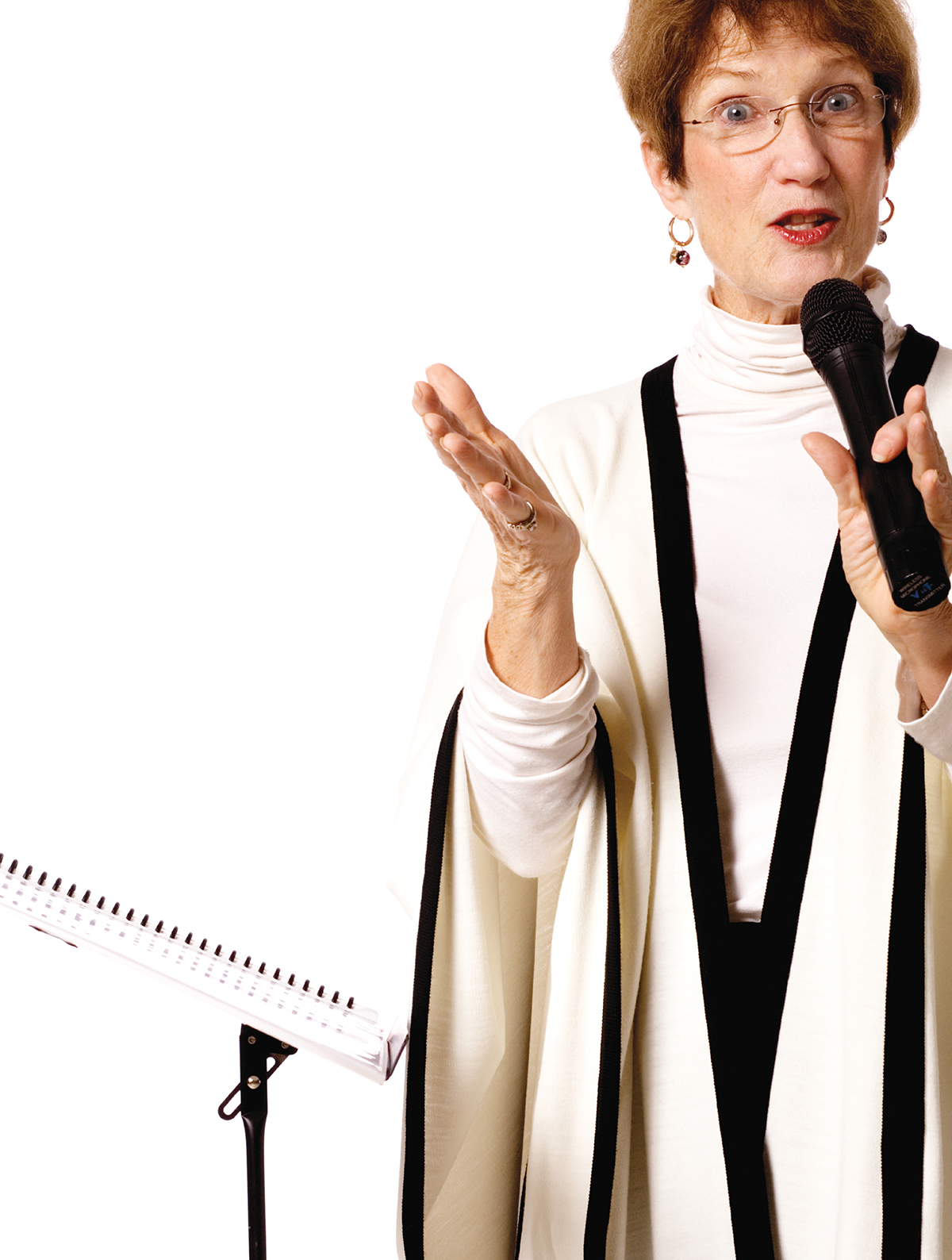The Experts
The Bridge Builder
If you’ve parted ways with your religion or you’re merging two faiths, your wedding might call for a different kind of officiant.
By Terri Trespicio
Let’s get one thing straight: Elly Jackson is not here on a mission from God. Not in so many words, at least. And while she may be a lot of things (including a Catholic), when it comes to her work, she prefers to be called a “non-denominational minister,” “spiritually oriented celebrant,” or “secular humanist.” She’ll even take “a cross between a justice of the peace and a minister,” if that works for you. Whichever term you choose, you’ll get someone serving an undeniably noble cause—helping couples of all types tie the knot.
Do you get hired mostly by atheists, or just people with no religious affiliation? By and large, I get calls from people who have turned away from traditional religion and are interested in de-emphasizing the direct role God plays in their wedding. I’d say two-thirds of my clients are lapsed or ex-Catholics. And a third of them are Catholics marrying a Jewish or Protestant person. On the whole, they’re either bridging two different heritages, or looking to play down the focus on religion altogether.
If the affianced come from different backgrounds, how do you plan the nuptials? Ask yourselves which rituals and symbols from your culture or religion you love the most. For instance, in the Jewish tradition, the chuppah stands for the home that the newlyweds will build together. I once had a Christian woman adopt this symbol because she just really liked what it stood for. Many couples use the unity candle to signify the joining of two families, regardless of their religion. It’s perfectly fine and important to combine traditions as a tribute to who you both are.
How involved are you in designing ceremonies? I meet with couples once at the beginning of their planning for about an hour, when I do an intense interview. Then I have them fill out a long questionnaire separately, so I get both sides of the “how they met” story and hear what love means to each of them.
If the engaged pair is having doubts, can you help? No, this is not the same as marital counseling. I’m not trying to figure out if they should get married—they have to know that already.
Are there any ceremony rules outside of specific religions? The heart of any wedding ceremony has three steps: the asking, the vows, and the ring exchange. The only thing you have to do is the vows, but I invite couples to improvise from there. You don’t have to use readings from scripture, either, although there are a few passages that people often use, like 1 Corinthians 13:4 (“Love is patient and kind; love is not jealous or boastful…”). You can choose from classical readings, modern poetry (e.e. cummings is popular), the Apache wedding prayer, or the Irish blessing, among others. The point of the reading is that it’s classic and eternal and speaks to both of you.
What about writing your own vows? I encourage couples to do that, but most often they’ll choose from a selection of traditional and nontraditional vows. If they choose to write their own, I often hear it for the first time the day of. I say, do whatever makes the wedding unique and special.
What’s the biggest mistake a bride and groom can make? The worst thing is to
use the ceremony to appease other people, particularly someone who’ll get their nose out of joint if you don’t say this or do that. Don’t kiss anyone’s behind. I had one couple who seemed uncomfortable with the planning process. Then one day the bride-to-be sent me an e-mail saying they’d changed their minds—they were running off to Vegas. I was thrilled for them! You should do what feels best for you.
What are the most common requests you get? “Please make it lighthearted and fun.” “Please don’t mention God—or maybe God’s okay, but leave Jesus out of it.” And most important, “please keep it to 20 minutes.” In the end, they all want the kind of ceremony that makes them laugh and cry. They want it to be sacred and memorable.
Elly Jackson, 800-233-6460, bostonceremonies.com.
MIXING TRADITIONS
You don’t have to stand on ceremony to create an event that’s personal and inclusive.
DECIDE what role you want religion to play in your nuptials, if any.
CHOOSE your words carefully. Will you use the words “God” or “Jesus”? “Spirit” or “universal energy”?
THINK about the tone you want to set. When in doubt, keep it light.
INCLUDE symbols that represent your families, faiths, and cultures. If appropriate, invite family or friends to give readings, prayers, or blessings.
ADAPT the standard ceremony to reflect your values, tastes, and personalities. Remember, it’s about the two of you and no one else.
